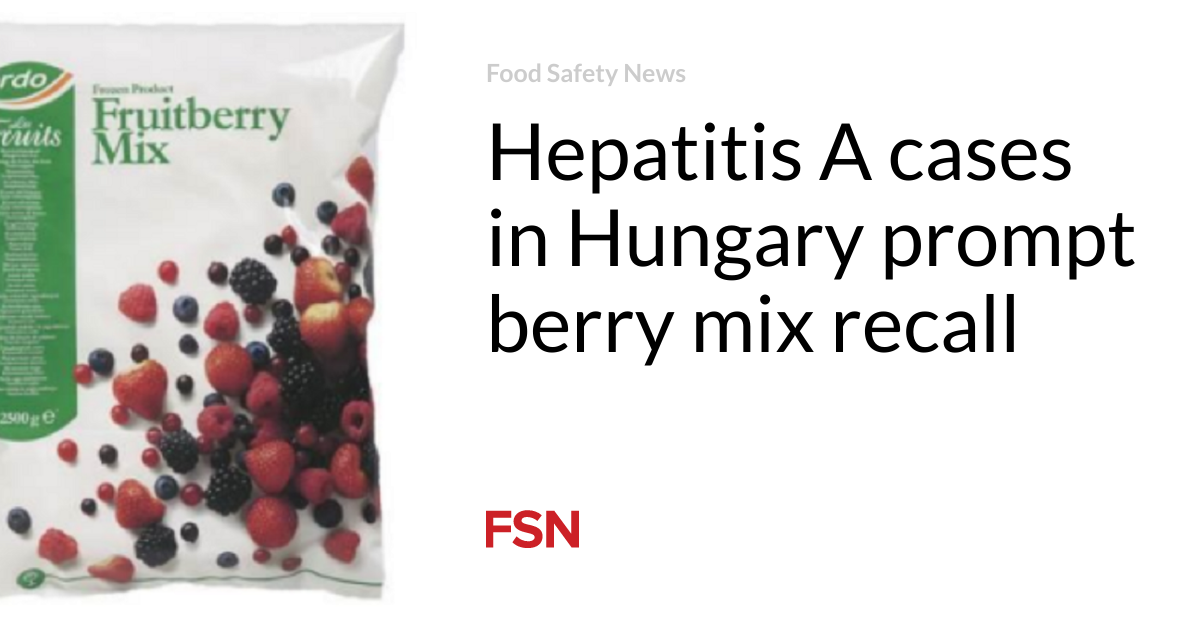A berry mix has been recalled across Europe after a number of people were sickened in Hungary by Hepatitis A.
Two sizes of Ardo Fruitberry mix were recalled after the Hepatitis A virus was found.
Ten to 15 people in Hungary were hospitalized after eating at a restaurant and subsequent testing by a Hungarian laboratory found Hepatitis A in a 2.5-kilogram bag of the berry mix. All those sick have now recovered.
The recalled 2.5-kilogram berry mix has lot number 58622131 and a best before of May 2024. 1-kilogram packs with lot numbers 58622130 and 58622131 and a best before date of November 2024 have also been recalled.
Production in Poland
Ardo’s Fruitberry mix is produced and packed by a subcontractor of the group in Poland.
Company officials said it is investigating the incident and a quality officer has been sent to Poland to find the root cause and determine the necessary corrective and preventive measures.
Countries listed in a Rapid Alert System for Food and Feed (RASFF) notification as being sent affected product include Austria, Belgium, Croatia, Germany, Greece, Hong Kong, Ireland, Netherlands, Romania, Spain, Sweden and the United Kingdom.
Ardo said it had blocked current stock of the Fruitberry mix so it can be tested.
Affected items were mainly delivered to customers in the foodservice industry. All of them have been contacted to stop sales and told to destroy the product.
“We regret that despite all precautions and care we take to grow, harvest and process our products in a safe and qualitative manner this incident has occurred and we are taking all necessary measures to further enhance our processes to ensure that our products are safe at all times. We apologize for any inconvenience to the people taken ill and to our customers,” the company said in a statement.
The time from being infected with the hepatitis A virus to becoming ill can range from two to seven weeks and symptoms usually last less than two months.
Hepatitis A is spread when someone ingests the virus through close contact with an infected person or by having contaminated food or drinks. Symptoms include inflammation of the liver, fever, low appetite, nausea, vomiting, diarrhea, muscle aches, and yellowing in the whites of the eyes and the skin (jaundice).
(To sign up for a free subscription to Food Safety News, click here)

